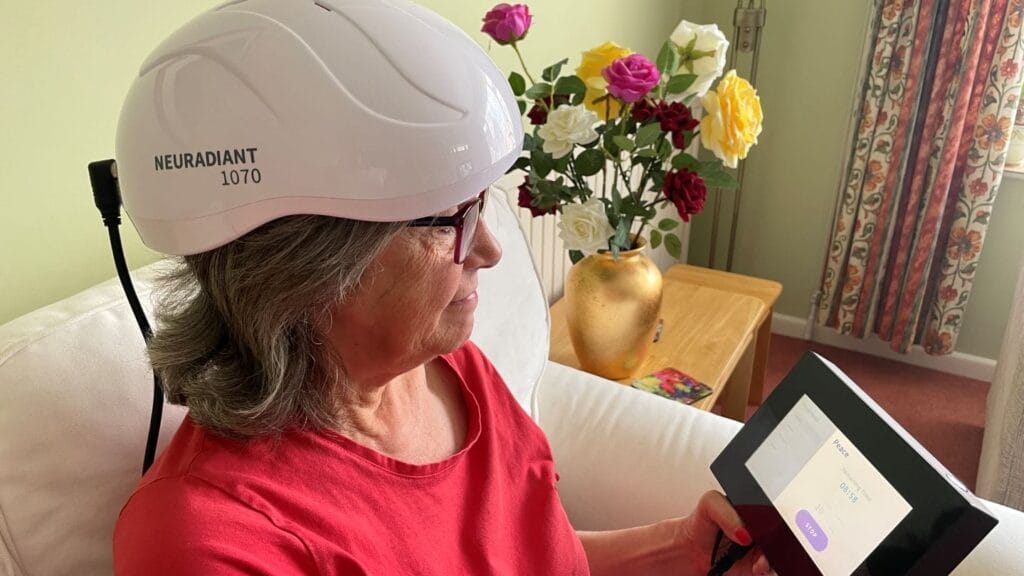

Tech developers and healthcare experts who have touted the possibilities of light therapy to aid senior care can now point to a new meta-study that affirms its clinical benefit.
A review of recent literature on light therapy — specifically, “photobiomodulation,” or PBM — reiterated that the practice significantly improved sleep and behavior issues for those who have Alzheimer’s disease.
Within senior living and care settings, there are constant efforts to adopt new technologies or systems that improve the sleeping habits of residents. Even older adults without dementia are subject to poor sleep and resulting issues during the day.
Alzheimer’s and dementia, however, have been shown to exacerbate those sleep issues, and in a vicious cycle, poor sleep speeds up cognitive decline, studies show.
Currently, 30% to 40% of older adults living with dementia live in nursing homes. Forty-two percent of assisted living residents have Alzheimer’s disease or another form of dementia. Eighteen percent of assisted living communities have a dementia care unit, wing or designated floor, and 11% of assisted living communities service only adults living with dementia.
PBM light therapy, unlike more generalized lighting systems, is a technique that more directly targets the brain, like a low-intensity laser, over a brief period of time.
“Studies have shown that PBM can improve cognitive function and reduce caregiver burden in patients with Alzheimer’s by reducing neuronal damage and inflammatory response,” the researchers wrote. “Our meta-analysis may strengthen the evidence on the effectiveness of light therapy in treating sleep disorders and psychobehavioral symptoms in patients.”
One research team compared the light therapy process with a “washing machine,” as it showed the ability to clean out or remove toxic beta-amyloid proteins from the brain. Beta-amyloid buildup is considered to be one of the leading causes of Alzheimer’s.
Current options for light therapy include a helmet that can be used with minimal interruption of activities.


